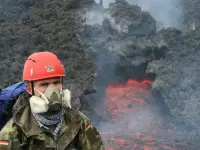
Ecologists study the interrelationships between organisms and their environments. For example, they may research how the creatures in forests, deserts, wetlands, or other ecosystems interact with each other, as well as their environments. Some may study how the removal or return of apex predators like wolves affect other species in the area, or the strengths and weaknesses of invasive species compared with native species.
What Does an Ecologist Do?
The reintroduction of wolves to Yellowstone National Park made national headlines in the 1990s, and brought about a major boost in the park's biodiversity. This victory for native ecology is unfortunately more than balanced out by the creep of invasive species like zebra mussels, Kudzu vines and Burmese pythons in other parts of the United States.
The roles species play in their communities are complex, and changes to those communities can be extremely disruptive. By increasing our understanding of how nature works, ecologists can help us make better decisions that minimize the effects of our activities on other species and the planet.
Since evolution is the ultimate designer, their knowledge is also key to helping us model our products, industries, buildings, institutions, and communities after what we see in nature, making them more efficient and sustainable. When it comes to the environment, ignorance is danger rather than bliss. The work of ecologists brings us the knowledge and tools to we need to protect it.
Solving Environmental Problems
Ecologists use their expertise to solve environmental problems. They may:
- Investigate the factors at play in a disturbed ecosystem
- Anticipate potential effects of proposed actions, or
- Design sustainable practices
Ecologists may do fieldwork to collect and analyze data on environmental conditions, or to assess or certify a habitat. They use the information they gather to plan habitat management or environmental restoration projects, including procedures, resources, schedules, and budgets.
Ecologists communicate their recommendations to landowners, clients, and policymakers, often with maps made with geographic information systems (GIS) or diagrams created with computer-aided design (CAD) programs.
RELATED - Ecology: Examining the Relationships Between Living Things
Where Does an Ecologist Work?
Many ecologists work for state and federal government natural resource agencies. These workers may write environmental impact statements evaluating the potential effects of industrial, commercial, and public sector projects. Others manage ecological resources as natural resource managers.
- Ecologists employed by environmental consulting companies may assess the environmental impacts of clients' projects, and design sustainable practices to minimize negative effects.
- Ecologists also monitor and restore disturbed populations and ecosystems for governments and private organizations>. They may also apply for environmental remediation permits on behalf of clients.
- Researchers and research assistants conduct research in the field and in labs to answer questions how species and their environment interact.
- Ecologists in program management positions advise policy makers through committees and reports.
- Colleges and universities also employ many ecologists as professors and staff researchers. They may also work for parks and recreation areas as naturalists and environmental educators.
While ecologists are employed nationwide, there are generally more jobs in the western states, and particularly on the west coast.
In the East, ecologically-sensitive Florida had the highest number of zoologists and wildlife biologists as of May 2013.
What Is the Average Ecologist Salary?
Ecologists, who fall under the broader category of environmental scientists and specialists, earned a median salary of $73,230 as of May 2020. The top 10% in this field earn more than $129,450, while the lowest 10% earn about $42,960.
2020 US Bureau of Labor Statistics salary figures and job growth projections for environmental scientists and specialists reflect national data not school-specific information. Conditions in your area may vary. Data accessed September 2021.
What Is the Job Demand for an Ecologist?
Growing awareness of the extent of environmental disturbance and a greater focus on sustainability are expected to drive significant job growth in the environmental sector. Much of the demand is expected to come from private companies, non-government organizations, and primary and secondary schools, more so than at universities and federal agencies.
Keep in mind that people who study ecology are often hired under other job titles like environmental consultant, natural resource manager, program manager, lobbyist, and lawyer.
Ecology Jobs & Job Description
Ecology jobs might focus on explaining life processes and interactions, the movement of energy throughout ecological systems and how ecosystems develop. Ecologists can conduct research, seek an applied position, or even a teaching position. Regardless, successful ecologists will be responsible for many similar tasks, including:
- Develop and test hypotheses about populations, communities, and ecosystem function
- Conduct field, lab, and theoretical research
- Analyze data using statistical models
- Study plant and animal characteristics over time
- Assess the biodiversity of ecosystems and examine influencing factors like pollution
- Provide useful data and advice to internal and external parties
- Use modeling techniques to assess the potential impact of ecosystem changes
- Publish the results of studies and research within the workgroup and throughout the field
- Manage multifaceted projects
- Support strategic initiatives and business development for the region
- Establish productive relationships with clients and partners
Second-tier ecologists often function as team lead or senior advisor to their workgroup. Accordingly, they may have more managerial responsibilities, such as:
- Producing concise technical documents like proposals and presentations for stakeholders
- Conducting planning, research and analysis, and assessments in order to best direct the project
- Applying for permits and navigating regulatory processes
- Ensuring quality and continuous improvement through innovation, and meeting timelines and benchmarks
- Consulting activities including: project management, tracking billable time, communicating schedules, directing/ supervising staff, and driving profitability
- Successfully bidding for and manage projects and funding opportunities
- Creating a challenging and supportive professional environment
What Are Ecologist Education Requirements?
Ecologists at various education levels are hired for a range of different jobs. Associates degrees are adequate for lab, field, or research technician positions. Those with Bachelor's degrees may find work as program scientists in government, or as environmental educators and teachers.
Master's degrees are generally required for environmental consultants, environmental planners, and program managers in private industry. They're also required for program managers, wildlife biologists, and natural resource managers in government. Similar positions at nonprofit organizations also require a 4-year degree.
Doctorates are required for faculty and research positions in academia, and for any type of research position in the private sector, government, and nonprofits.
Due to the interdisciplinary nature of the field, ecology students study life sciences such as zoology, microbiology, and botany, as well as chemistry and earth science. Mathematics and computer science are also essential skills. Since ecologists advise and communicate with others, good writing and communication skills are helpful.
Practical experience is very important. As early as possible, try volunteering or working as a professor's lab or research assistant, or spend a summer at a biological field station. As an alternative, help out at a park, nature center, or related government agency. Many colleges and universities offer Research Experiences for Undergraduates (REU) programs - seek them out. Internships are also excellent opportunities - try searching for them via the Environmental Careers Organization. You can also get help from the Student Conservation Association, which matches students with volunteer opportunities.
Ecology - Related Degrees
What Kind of Societies and Professional Organizations Do Ecologists Have?
The Ecological Society of America (ESA) (http://www.esa.org) administers optional professional certifications, offers networking opportunities through section and chapter activities, holds an annual conference, and puts out several publications.
The Organization of Biological Field Stations (http://www.obfs.org/) helps member stations increase their effectiveness in supporting critical research, education, and outreach programs. Its website offers a directory internships and REUs, a list of upcoming field courses, a station directory, and manuals and best practices for running field stations.





